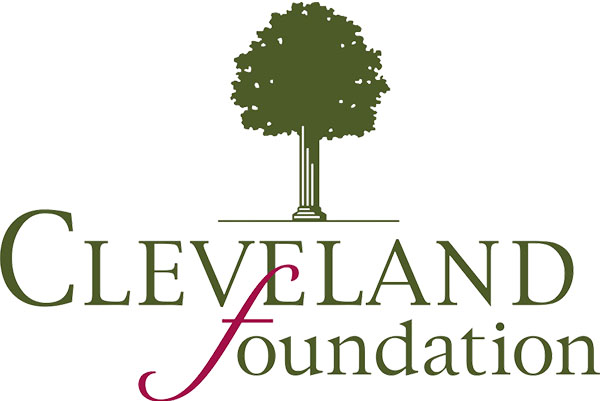Courses
APPLY NOW for my 2025 Online Hungarian to English Literary Translation Course!
I will be offering the 4th (!!) round of my beloved 7-week Online Hungarian to English translation course from early September to mid-October of this year. As always, we’ll be covering poetry, fiction, drama, and publishing and will meet with authors Réka Ágnes Tóth, Márió Juhász, András Gerevich, Ilka Papp-Zakor, and Zsombor Aurél Bíró, as well as editor of Hungarian Literature Online (HLO), Owen Good. Three to four final projects will be chosen by HLO to be published on their website. Five fully-funded scholarships are available at this time, courtesy of the Cleveland Hungarian Development Panel.
This course is perfect for anyone curious about literary translation, whether as a hobby or a potential career. You’ll need advanced English and Hungarian skills (but don’t worry, you need not be native in either). Each week, you’ll read one text and translate one, sharpening your skills through practice. Plus, your final project will be workshopped in class, polished by me, and ready for publication by the end of the course.
Scholarships: Five fully-funded scholarships are available. The class is limited to 10 students. (All applicants will be automatically considered for a scholarship.)
How to apply: Email hello@timeasipos.com and answer these questions:
What’s your Hungarian and English proficiency? (Beginner, intermediate, advanced, or native in reading, writing, and speech?) What’s your translation experience? (No experience? That’s fine!) What Hungarian literature have you read in its original language? (Don’t worry if it’s not much; I’m just curious.) Why do you want to take this course? How did you hear about it?


Past Courses:
This year (2022), I had the pleasure of leading another edition of my online Hungarian to English literary translation workshop. Five students and myself gathered online from places such as Budapest, Berlin, Barcelona, Las Vegas, and Washington D.C. Together, we tackled a carefully curated selection of texts from classical and contemporary, male and female Hungarian authors, including poets Kornélia Deres and Sándor Weöres, dramatists Dóra Gimesi and Ferenc Molnár, and fiction writers Ilka Papp-Zakor and Géza Csáth. Of these, all the contemporary authors visited the class to answer translation questions, as well as translator extraordinaire Judith Sollosy and translator-editor Owen Good. These guests guided our conversations and translation process. Week to week, these students—a mix of native Hungarian and native English speakers—came to class with provocative questions, ideas, and comments. It was an absolute delight to discuss literature and translation with these students, and to guide the work of rising translators.
You can read the works of students from the course here:
-
“The Sorcerer’s Garden,” a short story by Géza Csáth, translated by E.M. McQueen
-
“Ocean Liners,” a poem by Kornélia Deres, translated by Réka Tomasics
-
“Flying Monkeys,” a poem by Kornélia Deres, translated by Nora Schmel
-
“The Sorcerer’s Death,” a short story by Géza Csáth, translated by Zsuzsanna Györky
From February 16th to May 25th 2021, I had the pleasure of leading an online Hungarian to English literary translation workshop of five students. We gathered on Zoom every Tuesday evening for an hour and a half from all across the globe—Budapest, Berlin, Paris, London, and Bloomington, Indiana. Together, we tackled a carefully curated selection of texts from classical and contemporary, male and female Hungarian authors, including poets, dramatists, and fiction writers. We discussed the nuances of both languages (like, does együttérzés translate as compassion or empathy? And what is the difference between the two?), compared the intricacies of the two cultures (what an American or British sanatorium entails vs. a Hungarian one); and asked difficult questions (like, just what exactly is in a gyros?). We also had the opportunity to pose our questions to some of the authors themselves, namely Lajos Parti Nagy, Panni Puskás, and Márton Simon. It was a thrill and an absolute delight to have discussions like these with such sharp minds, and to guide the work of such skilled rising translators. I can rightly claim to have learned as much over the course of these months as they did. At the end of our course, Hungarian Literature Online published a translation of each student.
Those works can be found here:
-
“The Fat Girl Inside Me”, a story by Panni Puskás, translated by Anna Polonyi
-
The second act of the play Atriumchloride by Lajos Parti Nagy, translated by Charles Hebbert
-
“MaIDENHair”, a poem by Kinga Tóth, translated by Alina Williams
-
“Lovers”, a story by Áron Tamási, translated by Katharina Seyfert
Testimonials:
On our first day, we puzzled over the subtle difference between ‘süt’ in Hungarian and ‘bake’ in English: this was how I knew I was in the right place. What a treat to think collectively about the many quirks, mysteries and possibilities of both the English and Hungarian literary traditions. I couldn’t have been in better hands!
–Anna Polonyi, MFA Iowa Writers’ Workshop, author of Wayword
Timea brought a wide variety of texts to class, encouraging students to push themselves and tackle texts that pose unique challenges for translation, allowing students to learn in a welcoming, collaborative environment. Throughout the course, she shared her knowledge about writing, translation, and the realities of publication, setting students up to emerge from the course with polished translations and a practical skillset for publishing their work.
–Alina Bessenyey Williams, Hungarian studies program, Central Eurasian Studies, Indiana University.
Timea’s feedback on our individual translations was always invaluable, and the camaraderie engendered by the course format added much to the experience. And let us not forget the occasions that Timea organized for us to personally consult with the contemporary writers we were translating simply irreplaceable opportunities.
–Ryan Lane.